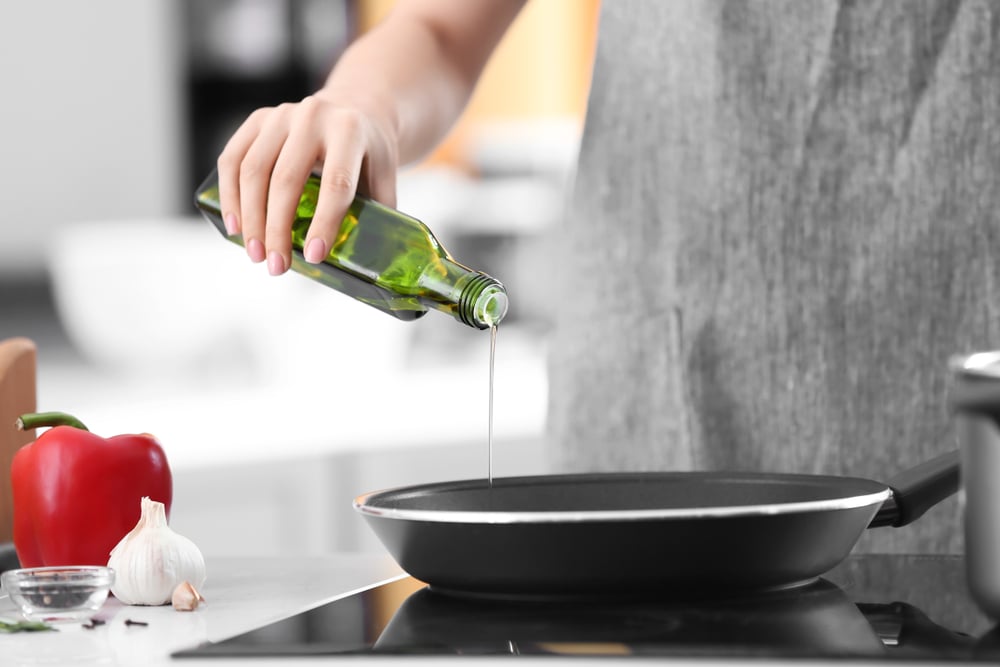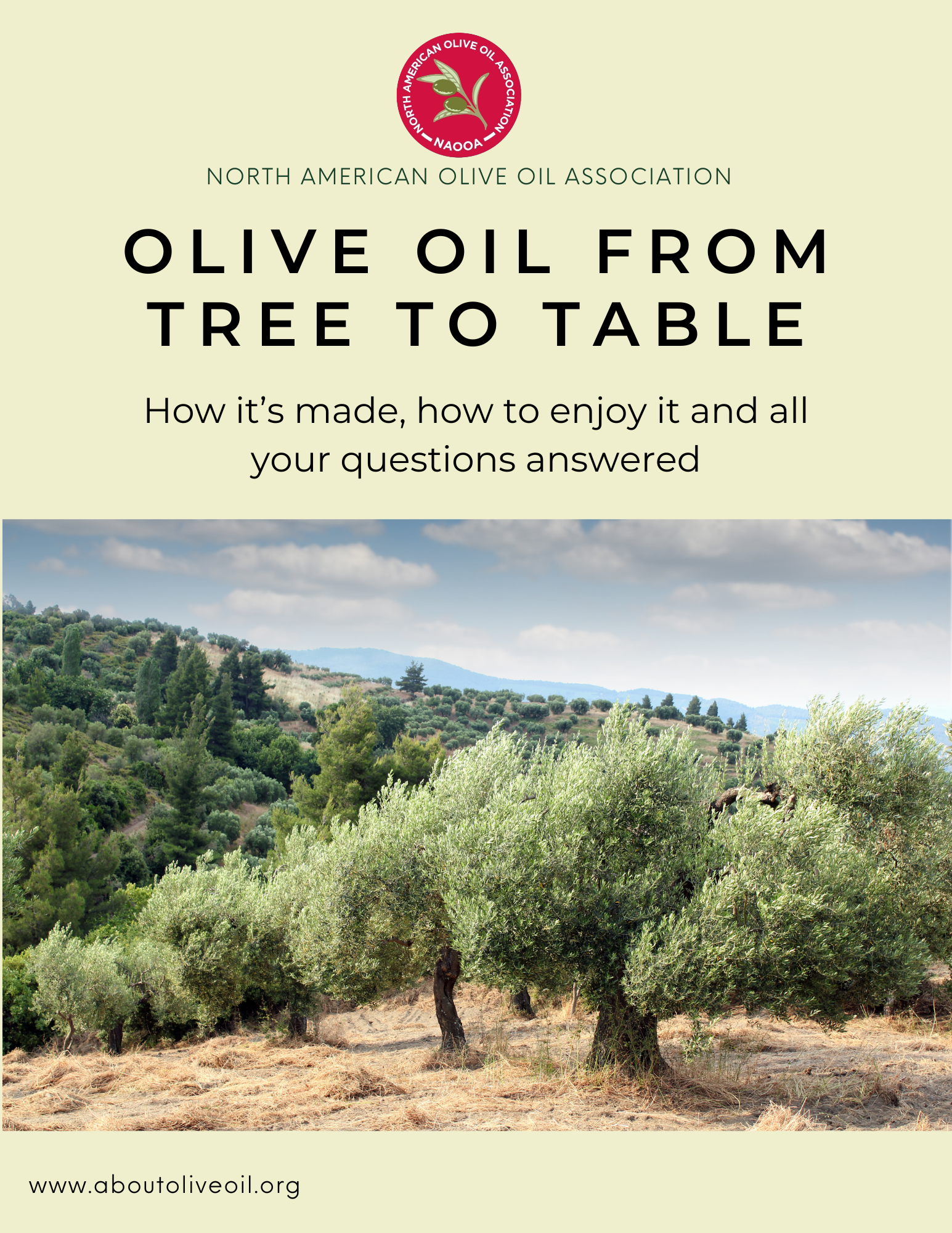Some people believe that you should not cook with olive oil because it supposedly has a low smoke point. In fact, smoke point is not what you should be worrying about when it comes to cooking oil. Instead, focus on oxidative stability, antioxidants and level of refinement.
When a cooking oil is exposed to heat, light and oxygen, it can oxidize. Oxidized oils can produce harmful compounds and toxic by-products and make your food taste bad. The more an oil can resist reacting with oxygen and breaking down, the better for cooking. This quality is measured as oxidative stability and is considered by many oil experts as the best predictor of how an oil performs during cooking. Oxidative stability is measured via induction time. This is the point when an oil breaks down and potentially produces harmful compounds. A greater induction time indicates an oil is more resistant to oxidation, a shorter induction time means the oil will oxidize easily.
What Influences Oxidative Stability of an Oil?
There are three major factors that determine an oil’s stability.
1. Number of Antioxidants
As the name suggests, antioxidants protect against oxidation, which is the undesirable process that occurs quicker when an oil is exposed to high heat for extended periods.
Therefore, antioxidants play a key role in an oil's oxidative stability and health benefits. It’s important to consider which oils contain and retain their naturally high antioxidant levels.
2. Type and Ratio of Fats
A fat is more resistant to heat if it contains fewer double bonds between its molecules. Double bonds oxidize and break down easier when exposed to heat.
- Saturated fats (SFA): These do not contain any double bonds and are solid at room temperature.
- Monounsaturated fats (MUFA): These contain only one double bond but are also stable at high temperatures.
- Polyunsaturated fats (PUFA): These have two or more double bonds, which makes them prone to oxidation.
3. The Extent of Refining
Some cooking oils require refinement because the oil is not consumable after extraction. Seed and vegetable oils usually are refined with high heat, high pressure, and chemicals to bleach, deodorize and neutralize the oils in order to remove objectionable odors or tastes and residues of chemical solvents used to extract the oil. This process strips away natural antioxidants. Refinement lowers the oxidative stability of oil because the process strips away natural antioxidants and also exposes the oil to heat.
Virgin and extra virgin olive oils are not refined. They are extracted by mechanical means only and are not exposed to heat or chemicals. Ordinary olive oil contains a mixture of refined olive oil and virgin olive oils; refined olive oil undergoes a refining process to remove flavor defects, but the process is relatively mild because olive oil is extracted without chemical solvents.
All vegetable oils – which are refined and typically high in PUFA – have low oxidative stability and low antioxidant content.
Extra virgin olive oil contains the highest amount of antioxidants by far and also high oxidative stability, which is why we recommend choosing olive oil for cooking, baking, and frying, even under high heat. The natural antioxidants in extra virgin olive oil protect the oil, and the consumer, from oxidation, and the oil is naturally stable due to the high percentage of monounsaturated fat.
Watch to learn more
Further Reading:
- Smoke Point Is Not a Reliable Indicator of Cooking Oil Stability
- Why Olive Oil is the Best Oil for Frying
- The Culinary Institute of America Clarifies Guidance on Cooking With Olive Oil
- Olive Oil Retains Health Benefits During Cooking
- USDA Recommends Olive Oil for Deep Frying
- US News reports on olive oil smoke points





